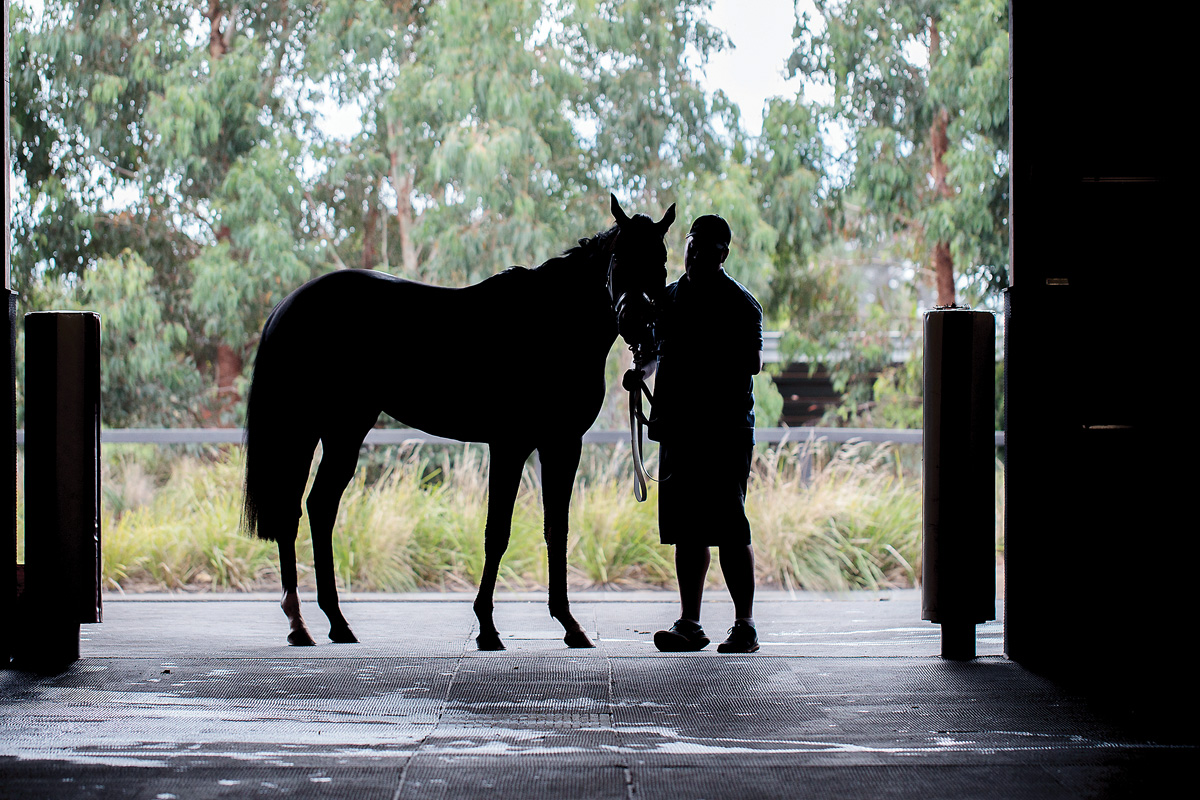PUBLIC concern about the treatment of racehorses has prompted the RSPCA to call for a tightening of the standards in the lead up to the state election.
The horse racing industry – one of the largest employers on the Mornington Peninsula – is one of five areas the animal welfare organisation has its sights set on improving, after research showed that 76 per cent of voters support legislating for better treatment of racehorses.
The animal welfare body is calling for the introduction of mandatory standards that would require owners and trainers to provide appropriate nutrition, socialisation, training and rehoming options as well as mandatory levels of training for staff.
The state government is also tackling the horse racing industry, introducing legislation to Parliament on 2 August in a bid to enhance safety for all at race meetings across the state.
The Racing Amendment (Unauthorised Access) Bill 2022 introduced into parliament earlier this month will add new provisions into the Racing Act 1958 to include safety measures to deter dangerous behaviour at Victorian racecourses.
The bill will amend the act to ban unauthorised access to restricted areas at racecourses during race meetings and official trial meetings.
It will also make illegal disruptive behaviour in and around restricted areas and allow for law enforcement officers to intervene when required.
Restricted areas will include the racetrack, mounting yard, stables and kennels, and pathways between them.
The bill will ensure the same safeguards are in place at every thoroughbred, harness and greyhound race meeting and official trial meeting across the state.
The racing industry in Victoria generates $4.7 billion for the Victorian economy and helps sustain over 34,900 jobs in the state.
RSPCA chief executive Dr Liz Walker said horse racing was one of five priorities selected after RSPCA engaged social research agency Kantar Public to ask a representative sample of 3,092 Victorian voters which animal welfare issues matter most to them. RSPCA is calling on political parties to commit to the reforms.
Walker said the RSPCA was also pushing for mandatory CCTV in abattoirs and knackeries to increase transparency and monitor risks for operators, and to improve public confidence and animal welfare.
Other areas on the RSPCA’s hit list include reducing the animal shelter quarantine period to three days instead of eight, the development of a “holistic” cat management plan, and the development of contemporary animal welfare legislation.
The RSPCA is calling for a holistic, government-led and funded plan to focus on responsible cat ownership including containment and desexing to improve cat welfare, help reduce the impacts on wildlife and ensure consistent, best practice management across the state.
There are an estimated 3.3 million owned and 700,000 unowned cats in Australia. Cats can start breeding at four months old and, if not desexed, one female cat and her offspring can produce up to 5000 cats in seven years.
Dr Walker said animal welfare legislation in Victoria no longer reflected contemporary scientific understanding or the expectations of the community – it is also outdated compared to legislation in places like the UK and the European Union.
Victorians can show their support by visiting rspcavic.org/become-an-rspca-animal-advocate and providing their name and postcode. Dr Walker said every name added will help convince politicians to support these issues.
“We want our politicians to know that two in five people (42 per cent) indicated a political party’s commitment to a key animal welfare reform would secure their vote for that party in the 2022 Victorian state election,” she said.
First published in the Southern Peninsula News – 23 August 2022


